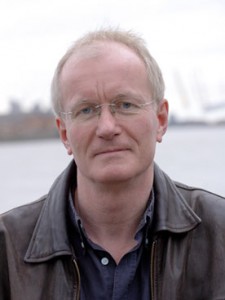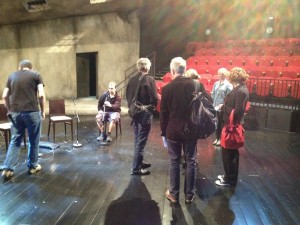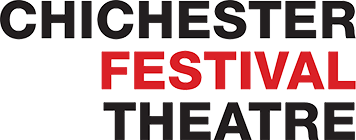
We’re coming to the end of another year of the Pass It On project, and where are we? Much further than we thought we would be! The number of interviews conducted is well past what we had planned (over 40) and many of them have already been transcribed. The quality of the interviews has also been getting better and better. This isn’t because we have found better interviewees – we have had tremendously interesting people talking to us from the start – but because the interviewing technique has gradually improved. The Pass It On team of interviewers have been prepared to get together to listen to each other’s interviews not just for the content but also to examine together their interview technique. This is a rather brave thing to do, as it really is exposing to have your interview played back in front of other people to be analysed and learned from, but this is what has happened, and the results are very clear.
The interviewees have been of all sorts, from one-time visitors to the long-time Director of the Youth Theatre, from people working Front of House to those who were at the heart of the organisation when it first started. There have been stories of great productions and dismal ones, of backstage support and dressing room rancour, of the town becoming tremendously proud of its theatre and at the same time the unmistakable whiff of class in some of the involvement. What emerges is a spoken history of the theatre, certainly, but we also see strong elements of a social history of the town.

One high point of the year was the panel discussion, It’s All In The Telling, during the run of Mark Hayhurst’s stunning play Taken at Midnight. I was lucky enough to be a member of the panel along with Mark and Kate Wheeler from the National Archives; the discussion was chaired with verve and humour by the novelist and former Chichester Theatre Executive Kate Mosse. We discussed in depth the ways in which historical events are represented in plays and novels. My own perspective was in part from oral history-based theatre. I found the exchange of views stimulating – and that included the views of the audience, not just the panel. We kept coming back to the question of ‘what is truth?’ Is there ever one truth, or are there always multiple truths, and if so how do we portray that? These are not merely academic questions. When it comes to editing and using the material from the Pass It On interviews they are precisely the questions that will have to be addressed. Watch this space.


